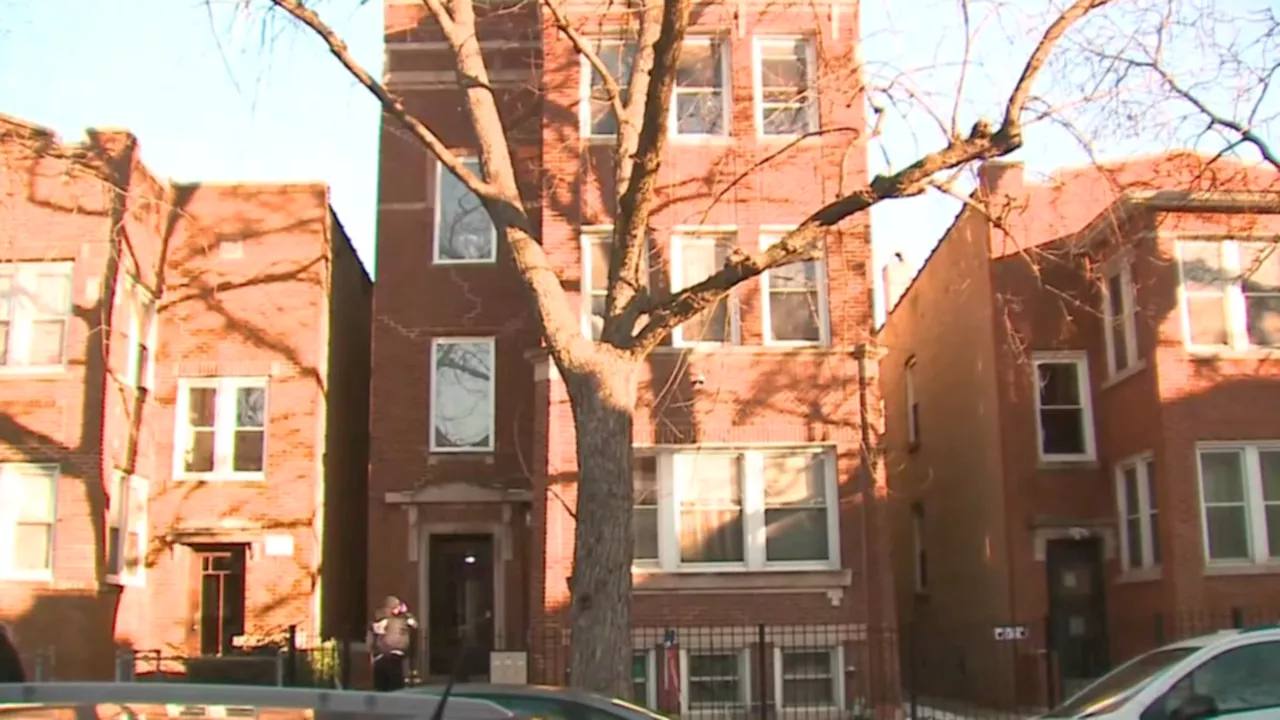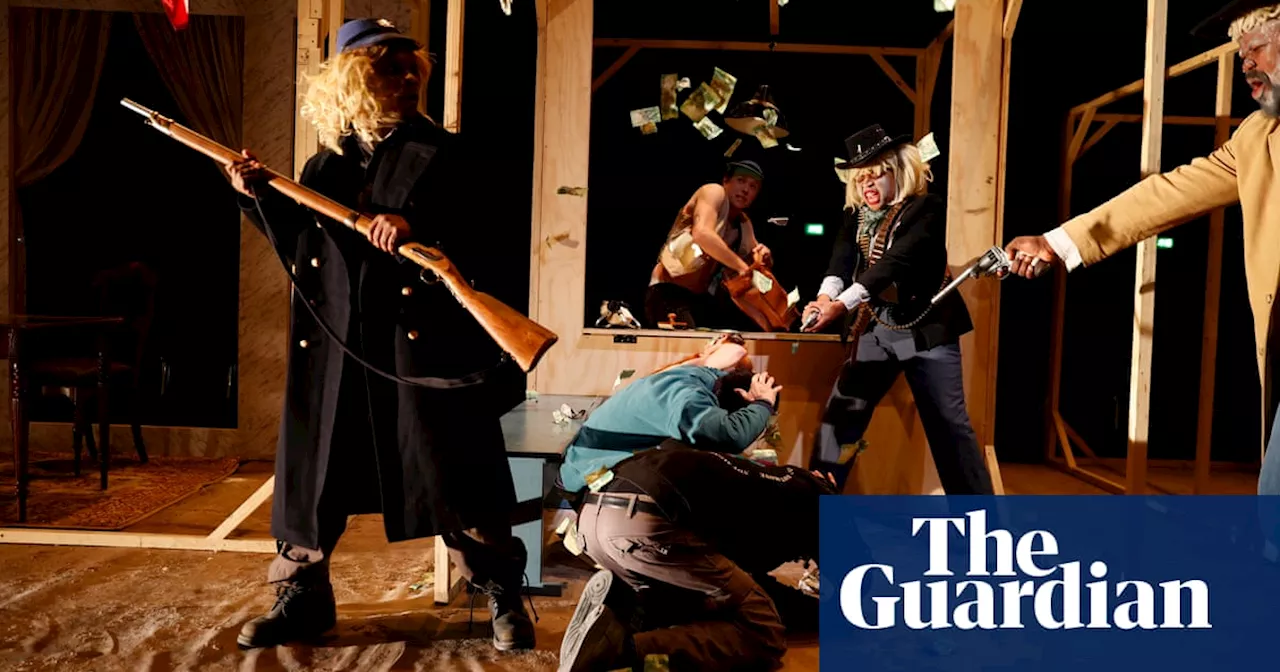This article explores the work of US artist Theaster Gates, who has dedicated himself to revitalizing neglected urban areas through art and community engagement. Meeting Gates in the week of Donald Trump’s inauguration, the author revisits Gates's past project in Chicago and his current exhibition in London, which draws on the legacy of Malcolm X and offers a powerful alternative vision of making America great again.
In the week of Donald Trump’s inauguration, the US artist is in the UK with a show drawing on the legacy of Malcolm X – and an alternative vision for making America great again.
When you are in this line of work, a question people sometimes ask is: “Of all the people you have interviewed and written about, who was the most inspiring?” And when they do, my memory often goes back 10 years ago to driving around the south side of Chicago with the radical potter, and revolutionary urban planner, and guerrilla archivist, and situationist gospel singer, Theaster Gates. This intellectually irrepressible man, about seven years into a project to transform the neighbourhood in which he lived – blighted by years of neglect and unemployment and poverty and related crime – into a working community of makers and artists, a place that looked after itself. While employed as a city planner and academic at the University of Chicago, Gates had, he explained to me as he drove, become haunted by a fundamental question: why is it so often that the people with the least amount of imagination and the most concern for the bottom line – real estate developers – get to choose how to transform derelict urban areas? Why not the people who might care about those areas most: the citizens who grew up there and live there? Gates’s political act is to say that craft matters, objects matter, in an increasingly digitised and manipulated world. To answer this question, Gates had some years earlier begun buying one or two of the empty houses along the street where he lived: the first with all of his savings – $18,000 – and others with money he raised selling editions of art he started to make. One lucrative line, $5,000 a pop at international art fairs, was a series of shoe-shine stands he made of scrap wood, referencing a whole history of Black-American experience; others were fabulous collages fashioned of reclaimed water hoses from the Alabama fire departments, titled. Using that money, he had transformed those houses into places of rough-edged beauty, using reclaimed wood and repurposed furniture. He filled the first – the Archive House – with 14,000 art books bought from a shutdown bookstore. The second – the Listening House – housed all the LPs he had saved from a once-famous local record shop, Dr Wax. He created a soul food kitchen between them, and opened them up to the public. The whole neighbourhood had slowly begun to rouse itself and, inspired by Gates’s example, remember just what it was capable of. We visited his studio, which employed 60 craftspeople and the huge, decaying porticoed former school that he had acquired from the city fathers for a dollar, and was ambitiously restoring as a gallery space using funds from selling bonds made from the marble tiles of the building’s former urinals – a nod to Marcel Duchamp – inscribed “In art we trust”. When we met, Gates was in high demand exporting that vision to beleaguered communities in the American rust belt and beyond. It seemed to me then that his work was a powerful broadside to that juvenile mantra of tech bros and venture capitalists, the one that claims progress comes from “moving fast and breaking things”. Gates was modelling a proper human alternative: stay put and preserve things, use all of your agency to make them live. Photograph: © Theaster Gates. Photograph © Sara Pooley, courtesy of White Cube Gallery. Last week, 10 years on – a decade in which the hope placards of the Obama presidency have long been abandoned – I met up with Gates again, at the White Cube gallery in Bermondsey, south, where he is putting together a large-scale exhibition of some of his current thinking. In the week that the 47th president was sworn in, here Gates was unpacking from dozens of enormous shipping crates his alternative vision of making America great again. The exhibition, called 1965: Malcolm in Winter: A Translation Exercise looks back 60 years to the assassination of Malcolm X, but through a particular evocative lens. When Gates put on an exhibition in Tokyo last year, an exhibition partly concerned with the links between the American civil rights movement and Japanese traditions of deep craftsmanship, he was approached by an 87-year-old woman, Ishitani. Ishitani was the widow of a journalist, Ei Nagata, who, along with his wife, had been a lifelong student of Black-American history, an obsessive collector of pamphlets and posters from the 1960s, and the translator of all of Malcolm X’s speeches into Japanese. That obsession had been fuelled by the fact that the couple had been in the audience in Harlem on 21 February 1965, when Malcolm X was shot and killed while making a speech. Now that her husband was gone, Ishitani was wondering exactly what to do with the unique archive they had accumulated. Gates’s gallery show had provided the answer: she would donate it to the artist.
Theaster Gates Malcolm X Urban Renewal Art And Activism Community Engagement American Civil Rights Movement
United Kingdom Latest News, United Kingdom Headlines
Similar News:You can also read news stories similar to this one that we have collected from other news sources.
 One child dead and another hospitalised after suspected carbon monoxide poisoning in Chicago7NEWS brings you the latest local news from Australia and around the world. Stay up to date with all of the breaking sport, politics, entertainment, finance, weather and business headlines. Today's news, live updates & all the latest breaking stories from 7NEWS.
One child dead and another hospitalised after suspected carbon monoxide poisoning in Chicago7NEWS brings you the latest local news from Australia and around the world. Stay up to date with all of the breaking sport, politics, entertainment, finance, weather and business headlines. Today's news, live updates & all the latest breaking stories from 7NEWS.
Read more »
 ‘Hating and talking s*** for 20 year’: Vicious feud erupts between NBA legendsNBA: Josh Giddey's Chicago Bulls have stunned a flashy San Antonio Spurs.
‘Hating and talking s*** for 20 year’: Vicious feud erupts between NBA legendsNBA: Josh Giddey's Chicago Bulls have stunned a flashy San Antonio Spurs.
Read more »
 Sobering Thriller Explores Far-Right Terror in 1980s AmericaA new thriller draws parallels between 1980s far-right domestic terror and recent events like the January 6th Capitol attack.
Sobering Thriller Explores Far-Right Terror in 1980s AmericaA new thriller draws parallels between 1980s far-right domestic terror and recent events like the January 6th Capitol attack.
Read more »
 Comedian's White Nationalist Show Resonates Across AmericaThis article tells the story of how a young Jewish comedian ended up crashing a meeting of white nationalists in New York. His show, which debuted in London and Edinburgh in 2018, became a viral sensation in the US, winning him a Tony and an Emmy. The comedian discusses the show's themes of assimilation and the impact of recent events like George Floyd's murder and the Covid pandemic on his writing.
Comedian's White Nationalist Show Resonates Across AmericaThis article tells the story of how a young Jewish comedian ended up crashing a meeting of white nationalists in New York. His show, which debuted in London and Edinburgh in 2018, became a viral sensation in the US, winning him a Tony and an Emmy. The comedian discusses the show's themes of assimilation and the impact of recent events like George Floyd's murder and the Covid pandemic on his writing.
Read more »
 Dark Noon: When America's History Becomes Uncomfortably PersonalDark Noon, a South African-produced show exploring American history through the lens of its own performers, has garnered both acclaim and controversy. While praised by critics like The Guardian, the show has sparked walkouts and intense reactions, particularly in the US, due to its unflinching portrayal of slavery and the use of whiteface by the predominantly black cast.
Dark Noon: When America's History Becomes Uncomfortably PersonalDark Noon, a South African-produced show exploring American history through the lens of its own performers, has garnered both acclaim and controversy. While praised by critics like The Guardian, the show has sparked walkouts and intense reactions, particularly in the US, due to its unflinching portrayal of slavery and the use of whiteface by the predominantly black cast.
Read more »
 Dark Noon: A Divisive Performance Exploring America's HistoryThe South African-created show 'Dark Noon', which tells the story of America in 105 minutes, has garnered both acclaim and controversy. While receiving five-star reviews at the Edinburgh International Fringe Festival, the show sparked walk-outs at US performances in South Carolina and New York due to its raw and challenging exploration of American history, particularly its treatment of slavery.
Dark Noon: A Divisive Performance Exploring America's HistoryThe South African-created show 'Dark Noon', which tells the story of America in 105 minutes, has garnered both acclaim and controversy. While receiving five-star reviews at the Edinburgh International Fringe Festival, the show sparked walk-outs at US performances in South Carolina and New York due to its raw and challenging exploration of American history, particularly its treatment of slavery.
Read more »
